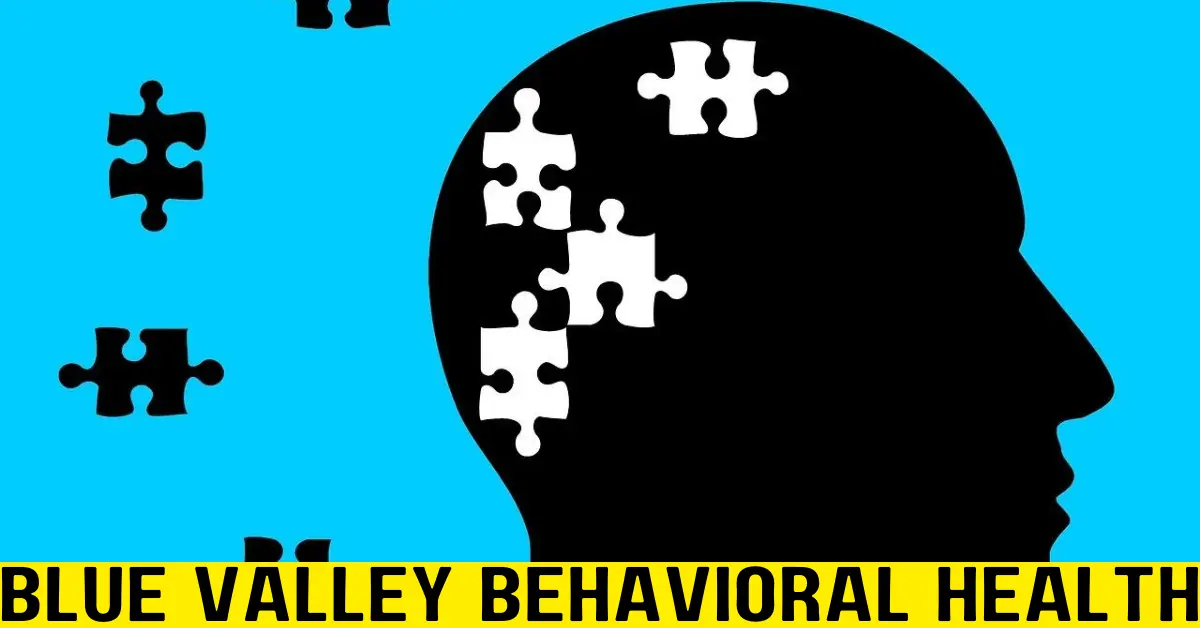Achieving optimal “health and wellness” is a lifelong journey, not a destination. It’s about making choices that support your physical, mental, and emotional well-being. It’s about feeling energized, engaged, and able to live your life to the fullest.
Here are some key pillars of optimal health and wellness:
Physical Health:
- Nutrition: Eating a balanced diet that’s rich in fruits, vegetables, whole grains, and lean protein is essential for providing your body with the nutrients it needs to function properly.
- Physical Activity: Regular exercise is crucial for maintaining a healthy weight, reducing your risk of chronic diseases, and boosting your mood. Aim for at least 150 minutes of moderate-intensity exercise or 75 minutes of vigorous-intensity exercise each week.
- Sleep: Getting enough sleep is vital for both physical and mental health. Most adults need between 7 and 8 hours of sleep per night.
- Stress Management: Chronic stress can take a toll on your physical and mental health. Find healthy ways to manage stress, such as yoga, meditation, or spending time in nature.
- Positive Relationships: Strong social connections are essential for our well-being. Make time for the people who matter most to you.
- Mindfulness: Practicing mindfulness can help you become more aware of your thoughts and feelings and live in the present moment.
Emotional Well-being:
- Purpose and Meaning: Having a sense of purpose in life can help you feel more fulfilled and motivated.
- Gratitude: Practicing gratitude can help you focus on the positive aspects of your life and improve your overall happiness.
- Self-compassion: Be kind to yourself and forgive yourself for your mistakes.
Remember, there is no one-size-fits-all approach to optimal health and wellness. What works for one person may not work for another. The most important thing is to find what works for you and make healthy choices that you can stick with over time.
Here are some additional tips for achieving optimal health and wellness:
- Set realistic goals: Don’t try to change everything at once. Start with small, achievable goals and gradually build on your successes.
- Find an accountability partner: Having someone to support you on your journey can make a big difference.
- Celebrate your successes: Take the time to celebrate your achievements, no matter how small they may seem.
- Be patient: It takes time to make lasting changes to your lifestyle. Don’t get discouraged if you don’t see results immediately.
- Most importantly, have fun! Enjoy the process of making healthy choices and feeling your best.
I hope this helps!
What is optimal health and wellness?
Optimal “health and wellness” isn’t a single definition, but rather a dynamic state of being where your physical, mental, and emotional well-being are all thriving in harmony. It’s about feeling energized, empowered, and able to live your life to the fullest potential.
Here’s a breakdown of its key components:
Physical health and wellness:
- Nourishment: A balanced diet rich in fruits, vegetables, whole grains, and lean protein provides your body with the fuel it needs to function optimally.
- Movement: Regular physical activity, whether brisk walks, gym sessions, or dancing, helps maintain a healthy weight, reduces disease risk, and boosts energy levels.
- Rest: Adequate sleep, usually around 7-8 hours for adults, is vital for physical and mental repair and rejuvenation.
Mental health and wellness:
- Stress Management: Finding healthy ways to cope with stress, like yoga, meditation, or spending time in nature, can prevent its detrimental effects on your well-being.
- Positive Connections: Strong social bonds provide support, understanding, and a sense of belonging, contributing significantly to mental health.
- Mindfulness: Practicing mindfulness helps you become more aware of your thoughts and feelings, allowing you to live in the present moment and manage emotions effectively.
Emotional “health and wellness”:
- Purpose and Meaning: Having a sense of purpose in life, whether through work, hobbies, or relationships, can provide direction, motivation, and fulfillment “health and wellness”.
- Gratitude: Cultivating an attitude of gratitude shifts your focus to the positive aspects of your life, boosting happiness and resilience.
- Self-compassion: Treating yourself with kindness and understanding, accepting imperfections and learning from mistakes, fosters inner peace and self-acceptance.
Remember, optimal health and wellness isn’t about achieving a specific body type, fitness level, or lifestyle. It’s about finding a balance that works for you, making choices that support your well-being, and constantly adjusting and evolving as your life changes.
What is an example of optimal health?
As “health and wellness” isn’t a one-size-fits-all concept, pinpointing a single example wouldn’t do it justice. Instead, let’s explore some potential scenarios showcasing how different individuals might experience optimal health based on their specific circumstances:
1. The Active Athlete:
- A young athlete in peak physical condition, excelling in their chosen sport while maintaining a balanced diet, adequate sleep, and effective stress management techniques. Their well-being is intricately linked to peak physical performance, but they also prioritize mental and emotional resilience “health and wellness”.
2. The Busy Professional:
- A working parent juggling demanding hours with family life, yet prioritizes healthy eating habits, regular walks or gym sessions, and mindfulness practices to manage stress. Their optimal health revolves around balancing their professional and personal spheres while maintaining their well-being.
3. The Recovering Individual:
- Someone overcoming a health challenge, diligently following their doctor’s recommendations, incorporating gentle exercise, nutritious meals, and self-care activities. Their optimal health focuses on managing their condition, rebuilding physical strength, and fostering emotional well-being through the recovery process.
4. The Creative Soul:
- An artist finding joy in their creative pursuits, enjoying healthy and delicious meals, engaging in nature walks, and prioritizing strong social connections. Their optimal health revolves around pursuing their passions while nourishing their body and mind through healthy choices and supportive relationships.
5. The Senior Citizen:
- An older adult maintains an active lifestyle through gentle exercises, social activities, and healthy eating habits. They prioritize managing chronic conditions, staying engaged with loved ones, and finding new sources of purpose and meaning. Their optimal health focuses on enjoying their twilight years with good health, strong social connections, and continued engagement in life.
Remember, these are just illustrative examples. Optimal health is personal and dynamic, constantly evolving alongside your life experiences and needs. The key is to find what works for you and make choices that support your physical, mental, and emotional well-being in a balanced and sustainable way.
I hope this clarifies the multifaceted nature of optimal health and helps you visualize its potential expressions in different individuals!
What is the optimal health theory?
The term “optimal health theory” encompasses several different frameworks and models, making it challenging to pinpoint one specific theory. However, some recurring themes and approaches emerge when exploring prominent viewpoints:
1. Holistic & Dynamic Perspective:
- Optimal health transcends solely physical well-being and encompasses physical, mental, emotional, spiritual, and social dimensions.
- It’s not a static endpoint but a dynamic process of continually optimizing these various aspects throughout life.
2. Preventive Focus:
- The emphasis lies on proactive approaches to prevent disease and promote well-being rather than solely treating illnesses.
- This involves healthy lifestyle choices, stress management, early intervention, and personalized preventive measures.
3. Individualized & Contextual:
- There’s no one-size-fits-all approach to optimal “health and wellness”, as individual needs, genetics, environment, and cultural context play a significant role.
- Theories emphasize personalized strategies and interventions tailored to specific individuals and their circumstances.
4. Empowerment & Self-efficacy:
- Optimal health isn’t solely dependent on external factors or healthcare systems.
- Theories encourage individuals to take ownership of their well-being through informed choices, self-management techniques, and active participation in health decisions.
Examples of prominent optimal health theories:
- The Optimal Health Model by the U.S. Office of Population Affairs: Focuses on adolescent health and emphasizes prevention through healthy behavior choices.
- Salutogenic theory: Emphasizes resources and strengths individuals possess to promote health and well-being.
- Convergent Care Theory: Promotes collaborative care across healthcare professionals and patients to achieve optimal health outcomes.
In conclusion, rather than a single monolithic theory, “health and wellness” represents a spectrum of evolving frameworks and approaches emphasizing a holistic, dynamic, and personalized view of well-being. The common thread lies in empowering individuals to make informed choices, prioritize prevention, and actively participate in optimizing their physical, mental, and emotional health throughout their lives.
I hope this explanation provides a clearer understanding of what “health and wellness” encompasses and its underlying principles.
What does optimal wellness mean?
“Optimal “health and wellness” is a nuanced concept that transcends just the absence of illness or disease. It’s about thriving in all aspects of your life: physical, mental, emotional, social, and even spiritual. It’s a dynamic state where you feel:
- Energized and vital: You have the physical and mental capacity to pursue your goals and engage fully with life.
- Fulfilled and purposeful: You find meaning and satisfaction in your activities and relationships.
- Resilient and adaptable: You can cope with challenges effectively and bounce back from setbacks.
- Connected and supported: You have strong and meaningful relationships with others.
- At peace and content: You have a sense of inner calm and acceptance towards yourself and the world around you.
Here are some key dimensions of optimal “health and wellness”:
- Physical health: Maintaining a healthy diet, exercising regularly, getting enough sleep, and taking care of your physical health is essential for feeling your best “health and wellness”.
- Mental health: Having positive coping mechanisms for stress, managing your emotions effectively, and nurturing your mental well-being are crucial for emotional stability and inner peace.
- Emotional wellbeing: Experiencing a range of positive emotions like joy, gratitude, and love, having healthy self-esteem, and feeling confident in yourself are key elements of emotional wellbeing.
- Social wellbeing: Having strong and supportive relationships with friends, family, and loved ones provides a sense of belonging and community.
- Spiritual wellbeing: Connecting with something larger than yourself, whether through nature, religion, or a personal belief system, can provide meaning and purpose.
Remember, optimal “health and wellness” wellbeing is a journey, not a destination. It’s about making choices that support your well-being, adapting to life’s changes, and continuously learning and growing. There’s no one-size-fits-all approach, and what works for one person may not work for another. What matters most is finding what works for you and making choices that allow you to thrive in all aspects of your life.
Here are some tips to cultivate optimal wellbeing:
- Focus on small, achievable goals: Don’t try to change everything at once. Start with small, sustainable changes that you can stick with over time.
- Practice self-care: Make time for activities that nourish your mind, body, and soul. This could include spending time in nature, meditating, reading, or spending time with loved ones.
- Build strong relationships: Connect with people who support you and make you feel good.
- Find your purpose: Having a sense of purpose in life can give you direction and motivation.
- Be grateful: Take the time to appreciate the good things in your life.
- Be kind to yourself: Forgive yourself for your mistakes and treat yourself with compassion.
By focusing on these elements and finding what works for you, you can embark on a journey towards optimal wellbeing and live your life to the fullest.
Why is optimal health important?
Optimal “health and wellness” is incredibly important for a multitude of reasons, impacting not just your physical well-being but also your mental, emotional, and social life. Here are some key reasons why optimizing your “health and wellness” is truly worthwhile:
Enhanced Physical Vitality:
- Reduced risk of chronic diseases: Optimal health significantly lowers your risk of developing debilitating chronic illnesses like heart disease, diabetes, cancer, and stroke.
- Increased energy and stamina: You’ll experience a boost in energy levels, allowing you to tackle daily tasks with greater ease and engage in activities you enjoy.
- Improved physical performance: Whether you’re an athlete or simply enjoy physical activities, optimal health enhances your strength, flexibility, and endurance.
- Stronger immune system: A healthy body is better equipped to fight off infections and recover from illnesses.
Elevated Mental and Emotional Well-being:
- Sharper focus and improved cognitive function: You’ll experience enhanced memory, concentration, and clarity of thought, leading to better decision-making and problem-solving abilities.
- Reduced stress and anxiety: Optimal health equips you with tools to manage stress effectively, promoting emotional calmness and inner peace.
- Greater resilience and mental fortitude: You’ll develop the mental strength to navigate challenges and bounce back from setbacks with greater ease.
- Improved mood and overall happiness: Optimal health fosters a positive outlook on life, leading to a sense of fulfillment and increased happiness.
Stronger Social Connections and a Fulfilling Life:
- Enhanced social interactions: Your increased energy and well-being enable you to engage more actively in social activities and strengthen your relationships.
- Greater productivity and achievement: You’ll experience improved focus and stamina, allowing you to be more productive in your work or studies and achieve your goals.
- Increased independence and autonomy: Optimal health promotes physical and mental independence, allowing you to engage in activities and live life on your own terms.
- Greater confidence and self-esteem: Taking charge of your health and experiencing its benefits boosts your confidence and self-worth.
Overall, optimal “health and wellness” isn’t just about feeling good; it’s about unlocking your full potential and living a truly fulfilling life. It allows you to experience life to the fullest, engage meaningfully with others, and contribute positively to the world around you.
Investing in your health through conscious choices is an investment in your future, leading to a happier, more vibrant, and productive life. Remember, the journey towards optimal health is lifelong, but every step you take is worth it. So, start prioritizing your well-being today and discover what it truly means to thrive!
What are the benefits of optimal health?
Optimal “health and wellness” brings a cascade of benefits that touch every aspect of your life, from the physical to the emotional and social. Here are some key advantages you can expect:
Physical Benefits:
- Reduced risk of chronic diseases: Optimal “health and wellness” acts as a shield against chronic conditions like heart disease, diabetes, cancer, and stroke.
- Increased energy and vitality: You’ll have a spring in your step and feel invigorated to tackle daily tasks and pursue your passions.
- Stronger immune system: Your body becomes a fortress against infections and recovers faster from illnesses.
- Improved physical performance: Whether you’re a fitness enthusiast or simply enjoy daily walks, optimal health enhances your strength, flexibility, and endurance.
- Enhanced sleep quality: A healthy body promotes deep, restful sleep, crucial for physical and mental rejuvenation.
Mental and Emotional Benefits:
- Sharpened focus and cognitive function: You’ll experience enhanced memory, concentration, and clarity of thought, leading to better decision-making and problem-solving abilities.
- Reduced stress and anxiety: Optimal “health and wellness” equips you with tools to manage stress effectively, fostering emotional calmness and inner peace.
- Greater resilience and mental fortitude: You’ll develop the mental strength to navigate challenges and bounce back from setbacks with ease.
- Improved mood and overall happiness: Optimal health fosters a positive outlook on life, leading to a sense of fulfillment and increased happiness.
- Boosted confidence and self-esteem: Taking charge of your health and experiencing its benefits boosts your confidence and self-worth.
Social and Life Benefits:
- Enhanced social interactions: Your increased energy and well-being enable you to engage more actively in social activities and strengthen your relationships.
- Greater productivity and achievement: You’ll experience improved focus and stamina, allowing you to be more productive in your work or studies and achieve your goals.
- Increased independence and autonomy: Optimal health promotes physical and mental independence, allowing you to live life on your own terms.
- Greater financial security: Reduced healthcare costs due to improved health can contribute to financial stability.
- Enhanced quality of life: You’ll experience life to the fullest, enjoying activities you love and feeling vibrant and present in every moment.
Remember, optimal “health and wellness” is a journey, not a destination. Every step you take towards it counts, and the benefits accumulate over time. So, prioritize your well-being, make conscious choices that support your health, and unlock the amazing potential that lies within you!








